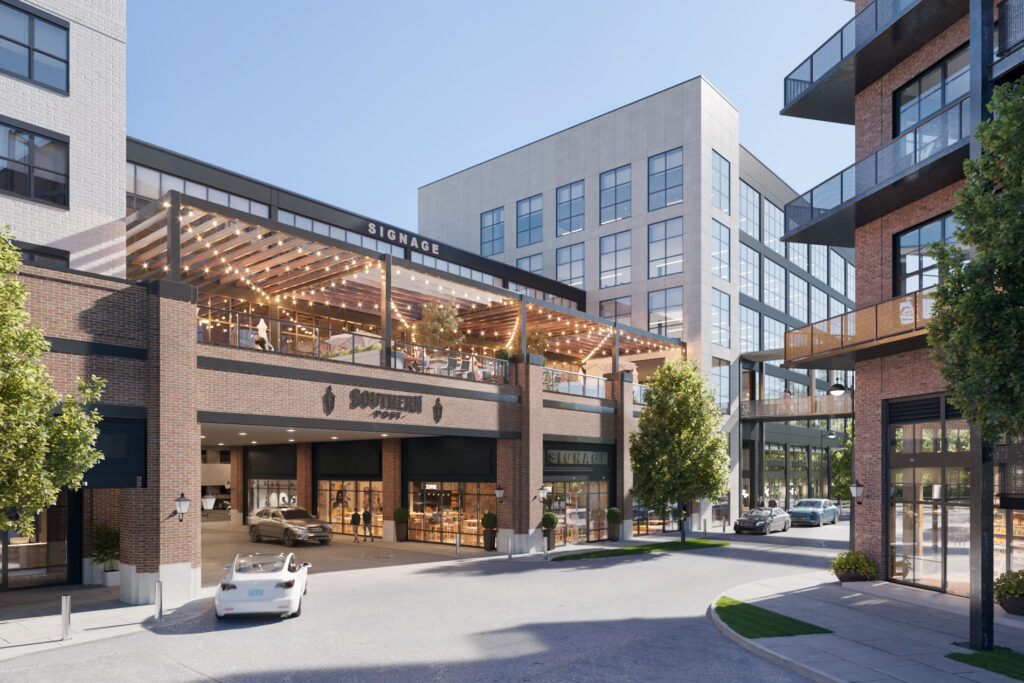The proximity of shopping malls to condominiums has emerged as a significant influence on real estate prices, shaping not only the market dynamics but also the lifestyles of residents. Imagine living in a bustling urban environment where your favorite stores, cafes, and entertainment options are just a stone’s throw away.
For many potential buyers, this convenience is not merely a luxury; it’s a necessity. This article delves into the intricate relationship between condo prices and their distance from major retail hubs, exploring how accessibility to shopping can elevate property values and, in turn, attract a diverse array of buyers—from young professionals seeking vibrant neighborhoods to families desiring convenience.
As we unpack the factors at play, we will uncover both the tangible and intangible benefits that come with living near these commercial centers, revealing why proximity to shopping malls is often a game-changer in the real estate market.
Understanding Condo Pricing: Key Influencing Factors

When evaluating condo prices, several key factors intertwine to shape market values, particularly proximity to shopping malls. First, consider the undeniable convenience: residents love being just a stone’s throw away from vibrant retail hubs, where shopping, dining, and entertainment converge.
This amenity not only attracts buyers but often fosters a sense of community, making such condos highly desirable.
For those seriously exploring options, visiting a Skye at Holland showflat can provide a tangible sense of how location and design come together to enhance everyday living. Experiencing the layout, finishes, and overall ambiance firsthand helps potential buyers understand the true value of a property situated near such conveniences.
Moreover, the overall economic landscape plays a critical role; during prosperous times, condos situated near bustling malls tend to see price surges, driven by heightened demand. Conversely, economic downturns can dampen interest, leading to cooling prices even in prime locations.
Additionally, the nature of the shopping mall itself—whether it’s a high-end retail complex or a more casual neighborhood strip—can also influence perceived value.
Ultimately, these factors create a dynamic pricing environment where the allure of accessibility and lifestyle amenities can significantly elevate condo prices in close proximity to shopping hubs.
Experiencing a Skye at Holland showflat offers potential buyers a firsthand perspective on how convenience, design, and modern living converge, making the decision to invest both informed and confident.
The Role of Shopping Malls in Urban Development

Shopping malls play a pivotal role in shaping urban development, acting as vital nodes of commerce and community interaction. Nestled within bustling cityscapes, these centers attract both residents and visitors, encouraging a vibrant mix of activities that extend beyond mere shopping.
They foster social cohesion, serve as venues for entertainment, and create a hub for diverse dining options. Moreover, the presence of a shopping mall can significantly enhance the desirability of nearby residential properties, including condominiums, as potential buyers often seek the convenience of having retail and recreational facilities just a stone’s throw away. As urban planners recognize the importance of integrated spaces where living, working, and leisure thrive, shopping malls emerge as essential components in the intricate tapestry of urban life, influencing not just foot traffic but also property values in their vicinity.
This dynamic interplay between commercial spaces and residential appeal illustrates how shopping malls can catalyze broader urban development goals, shaping cities not only in form but in function.
Economic Impact: How Shopping Malls Drive Property Values

Shopping malls serve as vital economic hubs, exerting a significant influence on the property values of nearby condos. The appeal is multifaceted: easy access to retail, dining, and entertainment options attracts potential buyers, driving up demand for residential units in close proximity.
Moreover, businesses housed within malls contribute to the local economy, generating jobs and fostering a vibrant community atmosphere that enhances the overall desirability of the area. As developers recognize the lucrative potential of this synergy, we often see condo projects sprouting up near these shopping centers, further fueling price growth.
In areas where malls thrive, condos don’t just sell—they become sought-after investments, transforming landscapes and reshaping neighborhoods into thriving locales replete with convenience and access. Ultimately, the proximity to a shopping mall isn’t just a perk; it can be a pivotal factor influencing the value of a condo, a phenomenon that illustrates the intricate interplay between retail infrastructure and residential dynamics.
Conclusion

In conclusion, the proximity to shopping malls significantly influences condo prices, with convenient access to retail amenities often translating to higher property values. Buyers increasingly prioritize locations that offer both lifestyle and convenience, making properties near shopping destinations particularly attractive investments. For example, residences like Skye at Holland showcase how strategic positioning near vibrant shopping complexes can enhance appeal and drive prices upward.
As urban living continues to evolve, understanding the impact of nearby amenities will be essential for both buyers and sellers in the real estate market.




